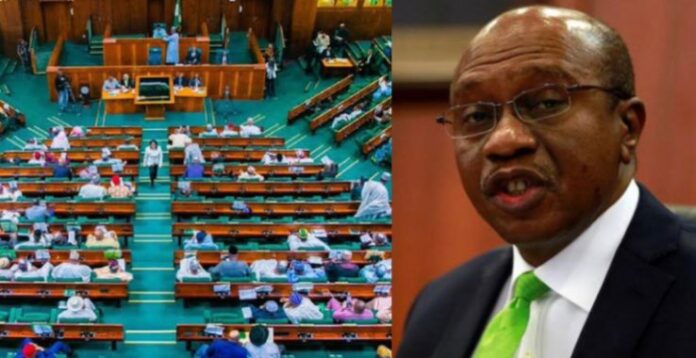The 10 day extension offered by the Central Bank of Nigeria (CBN) for the exchange of the outdated N200, N500, and N1,000 banknotes has been rejected by the House of Representatives Adhoc Committee on the redesign of three naira notes.
Alhassan Ado Doguwa, the majority leader of the house and chairman of the committee, said in a statement on Sunday that the green chamber will move forward and issue an arrest warrant to compel CBN Governor Godwin Emefiele to appear before the committee.
As the deadline of January 31 drew near, many Nigerians bemoaned the lack of new notes while the National Assembly asked a six-month delay.
ANN gathered that emerging from a meeting with the President on Sunday, the apex bank chief said Buhari gave permission for the deadline to be extended to February 10.
In its immediate reaction, the House of Representatives committee chaired by Doguwa rejected the extension, insisting that the CBN must comply with sections 20 sub 3, 4, and 5 of the CBN Act.
The lawmaker said, “The 10-day extension for the exchange of the old naira notes is not the solution: We as a legislative committee with a constitutional mandate of the house, would only accept clear compliance with section 20 sub 3, 4, and 5 of the CBN act and nothing more.
“Nigeria as a developing economy and a nascent democracy must respect the principle of the rule of law. And the House would go ahead to sign arrest warrant to compel the CBN Governor to appear before the adhoc committee.”
Doguwa said under his chairmanship, the committee would continue its work until it gets the demands of Nigerians addressed in accordance with the laws of the land.
He described the extension as a mere political gimmick to further deceive Nigerians and worsen their economic and social livelihood, insisting that the CBN governor must appear before or stand the risk of being arrested on the strength of legislative writs signed earlier by Speaker Femi Gbajabiamila.
He also said the policy is capable of frustrating the forthcoming general elections.
“Security agencies and their operations especially at the states level are generally funded through cash advances and direct table payments of allowances to operatives during elections,” he said.





